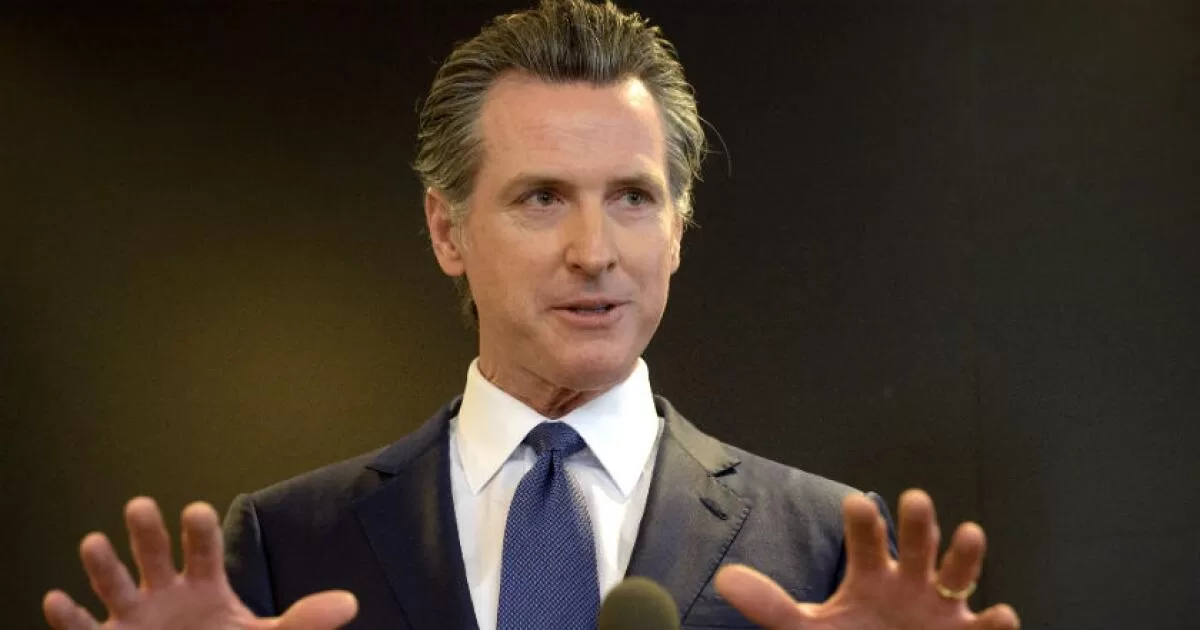California faces a massive budget deficit, which may be worse than the governor acknowledges. There’s been voluminous amounts of talk about but no end to the state’s housing and homelessness crises.
The time and energy Newsom devotes to boosting his national profile — traipsing around the country, running red-state ads promoting abortion rights — could be better spent at home. Instead of visiting Florida and Alabama, Newsom should take a tour of rural California, stopping in flyover places like Alturas, Sonora and Red Bluff.
It may not boost Newsom’s 2028 presidential prospects or win many converts. But it would acknowledge the disconnect their residents feel from the rest of the state, and show their concerns matter as much as those of Democrats in San Francisco and Los Angeles.
None of that, however, justifies the latest attempt to drive Newsom from office.
A group of Republicans involved in the failed 2021 recall effort announced this week that they’re trying again — marking the seventh attempt to short-circuit Newsom’s governorship.
It’s a waste of time and, potentially, a whole lot more taxpayer money. It should force lawmakers in Sacramento to finally make some badly needed fixes to the state’s broken recall process.
It’s also symptomatic of a larger ill.
For more than a generation, we’ve lived in the age of the permanent campaign. The line between governing and eyeing the next election has become indistinguishable — much to the chagrin of those who wish expedience and partisanship had less influence over lawmakers and their decisions.
But in recent years, the negative effects of the permanent campaign have been exceeded by something even more pernicious: the election without end.
Rather than admitting defeat, Donald Trump and his followers insist on relitigating the 2020 presidential contest. In Arizona, gubernatorial hopeful Kari Lake and other Republicans pulled the same stunt after losing their statewide races, refusing to recognize the results.
(For those who insist those elections were stolen, here’s a suggestion: Get together with Santa Claus and the Tooth Fairy and discuss ways to prevent similar “fraud” in 2024. You’re welcome.)
Elections used to have winners and losers, with both sides acknowledging as much. Now those who don’t like the results simply refuse to accept the outcome, ignoring the will of voters.
In Oregon, that meant lawmakers boycotted the Legislature to deny majority Democrats a quorum. In Wisconsin, unhappy Republicans threatened to nullify a state Supreme Court election and impeach a liberal justice simply because their preferred candidate lost. (The legislators were finally shamed out of such a flagrantly undemocratic move.)
That mindset, that elections don’t count unless they turn out the way you wish, is evident in the renewed effort to recall Newsom.
Like him or not, he has twice been elected governor. He decisively beat back the attempted 2021 recall; the 61.9% “no” vote precisely matched Newsom’s winning percentage in 2018 — meaning nearly $250 million was spent on a special election so voters could say, in effect, yep, we meant it when we chose this guy.
They chose Newsom again in 2022, when he cruised to reelection.
The GOP is in pathetic shape in California. That’s nothing new. It’s been nearly two decades since voters elected a Republican governor, the sui generis Arnold Schwarzenegger.
So now the strategy seems to be, if you can’t beat ’em, harass ’em.
And make some money in the process.
The San Francisco Standard reported that Rescue California, the campaign committee behind the 2021 recall election, is more than $1 million in debt. Fundraising for the latest effort could easily wipe away that debt and reap a hefty sum for organizers who profited nicely from the last go-round.
In the weeks and months after that costly, pointless election, lawmakers in Sacramento considered ways to overhaul the recall process, which has aged poorly since its conception more than a century ago.
It’s too easy to qualify a measure — it requires signatures representing just 12% of the votes cast in the prior gubernatorial election — and is set up so that an ousted governor could be replaced by someone receiving far less than majority support. (A recall election consists of two parts. Voters are asked whether someone should be removed, and if so, the ousted official is replaced by the top vote-getter, even if that candidate falls well shy of 50% support.)
But the impetus for long-overdue changes faded along with memories of the 2021 recall. Now is a good time for legislators to take the matter back up.
There’s the potential costs to consider as well as the corrosive effect of waging elections without end. Once the votes are counted, it’s time to move on.
For California voters, there’s this, too: If you find the prospect of a Trump-Biden rematch dispiriting, consider another campaign devoted to Newsom’s dumbheaded visit to the French Laundry, his Hollywood looks, his handling of the COVID-19 pandemic, with a squad of would-be Republican successors jockeying to out-MAGA one another.
That’s reason enough to oppose another recall election.
